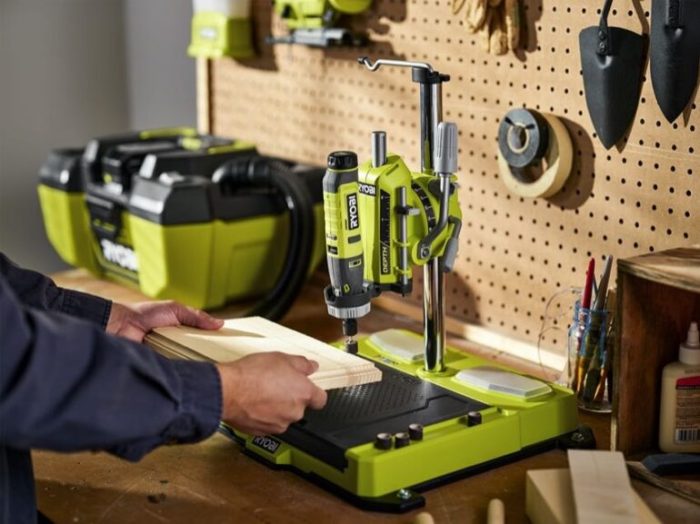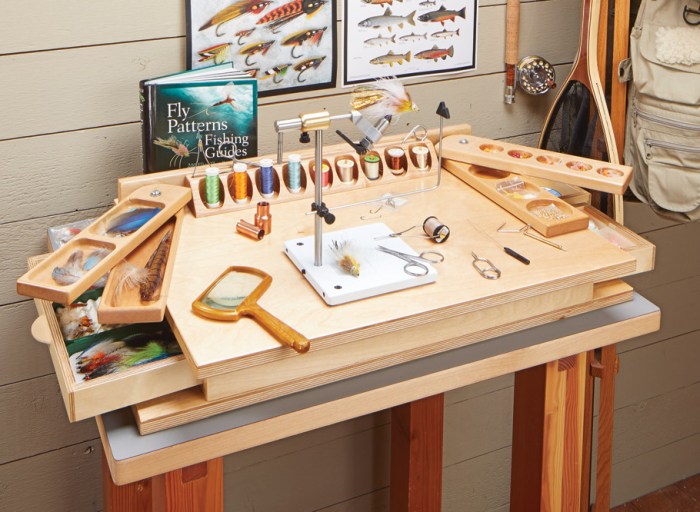Hobby Station: From simple workbenches to elaborate studios, a dedicated space transforms a pastime into a productive pursuit. This exploration delves into the design, equipment, and safety aspects of creating the perfect hobby station, regardless of your chosen craft—be it intricate miniature painting, precise electronics work, or the satisfying rhythm of woodworking. We’ll examine diverse hobby types, essential tools, space optimization techniques, and budget considerations, ensuring your creative haven is both functional and inspiring.
This guide provides a comprehensive overview of establishing a personalized workspace tailored to your specific needs and preferences. We’ll cover everything from planning the layout and selecting appropriate tools to implementing safety measures and managing your budget effectively. Whether you’re a seasoned hobbyist or just starting out, this resource offers practical advice and creative inspiration to help you build your dream Hobby Station.
Essential Tools and Equipment

Establishing a well-equipped hobby station is crucial for efficient and enjoyable project work. The specific tools needed will vary depending on the chosen hobby, but a general-purpose station requires a core set of versatile items to handle a range of tasks. Investing in quality tools upfront can significantly improve both the outcome and the experience of your hobby.The selection of tools should prioritize functionality, durability, and ergonomics.
A poorly designed or low-quality tool can lead to frustration, inefficiency, and even injury. This section Artikels essential tools for a typical hobby station, compares specific models of a key tool, and suggests practical storage solutions for maintaining organization.
Essential Tool Selection for a General-Purpose Hobby Station
A well-rounded hobby station necessitates a diverse collection of tools, adapting to the specific needs of the chosen craft. For example, a woodworker’s station will differ significantly from an electronics enthusiast’s workspace. However, several tools remain consistently valuable across various hobbies. These include a selection of precision screwdrivers (Phillips and flathead in various sizes), needle-nose pliers, wire cutters/strippers, a utility knife with extra blades, measuring tape, a ruler, and a set of high-quality scissors.
Adding a workbench vise, a magnifying glass, and a well-lit workspace further enhances functionality and precision.
Soldering Iron Comparison: A Key Tool for Electronics Hobbyists
For electronics hobbyists, the soldering iron is paramount. Choosing the right model involves considering wattage, tip type, temperature control, and ergonomics. Two leading brands often compared are Weller and Hakko. Weller offers a range of irons, including the Weller WLC100, known for its durability and consistent performance. It typically features a replaceable tip and a relatively high wattage for quicker heating and efficient soldering.
Hakko, another reputable brand, offers models like the FX-888D, praised for its precise temperature control and ergonomic design, beneficial for intricate work. The FX-888D’s digital temperature display allows for accurate adjustments based on the solder type and components being used. The selection ultimately depends on individual needs and budget, but both brands represent high-quality options within the market.
Recommended Storage Solutions for Tools and Materials
Maintaining an organized hobby station is essential for efficiency and safety. Proper storage prevents tool damage, reduces clutter, and allows for quick access to necessary items. Several effective storage solutions exist, each catering to different needs and preferences. Pegboards provide excellent wall-mounted storage for frequently used tools, keeping them easily accessible. Drawers and cabinets are ideal for storing smaller parts and materials, keeping them organized and protected from dust and damage.
Clear plastic containers with labeled lids are particularly useful for organizing smaller components and fasteners, preventing loss and confusion. For larger items, shelves or dedicated storage racks provide a practical solution, maximizing space and improving overall organization. A rolling cart can also be beneficial, offering mobility for frequently used tools and materials.
Safety Considerations: Hobby Station

Maintaining a safe hobby station is paramount, not only for preventing injuries but also for ensuring the longevity of your projects and equipment. A well-organized and safe workspace fosters creativity and reduces the risk of accidents, allowing for a more enjoyable and productive hobby experience. Neglecting safety precautions can lead to serious consequences, ranging from minor cuts and burns to more severe injuries requiring medical attention.Proper safety measures vary significantly depending on the specific hobby pursued.
For instance, woodworking requires a different approach than electronics repair, while painting necessitates specific ventilation and handling procedures. Understanding and implementing these diverse safety protocols is crucial for a safe and fulfilling hobby experience.
Ventilation and Fume Control
Adequate ventilation is critical when working with materials that produce fumes or dust. For example, spray painting, model building using glues and paints, or working with certain types of wood requires well-ventilated spaces to prevent the inhalation of harmful particles or gases. This can be achieved through the use of exhaust fans, respirators, and working outdoors whenever possible.
In enclosed spaces, ensuring a consistent airflow is essential, potentially using air purifiers equipped with HEPA filters to remove airborne particles. Failure to provide adequate ventilation can lead to respiratory problems, headaches, and dizziness. A dedicated, well-ventilated area is crucial for minimizing health risks.
Fire Safety Precautions
Many hobbies involve the use of potentially flammable materials, such as paints, solvents, and wood. Implementing fire safety measures is crucial to prevent accidents. This includes keeping flammable materials away from ignition sources, such as open flames or electrical equipment. Having a fire extinguisher readily accessible, and knowing how to use it, is also essential. Furthermore, regularly checking electrical wiring for damage and ensuring that all electrical appliances are switched off when not in use minimizes the risk of electrical fires.
Regular cleaning of the workspace to remove flammable debris also contributes significantly to fire safety.
Electrical Safety Guidelines
Working with electricity in a hobby station presents unique safety challenges. Before working with any electrical components, always ensure that the power is switched off and that the equipment is unplugged. Using insulated tools and avoiding contact with exposed wires are essential. Never attempt repairs on electrical equipment unless you possess the necessary knowledge and skills. Regularly inspect power cords for damage, replacing any frayed or worn cords immediately.
Overloading power outlets should be avoided, as this can lead to overheating and potential fires. In cases of doubt, consult a qualified electrician.
Personal Protective Equipment (PPE), Hobby Station
Personal Protective Equipment (PPE) is crucial for safeguarding against various hazards. This includes eye protection, such as safety glasses or goggles, to protect against flying debris or chemical splashes. Hearing protection, such as earplugs or earmuffs, should be worn when operating noisy equipment, like power tools. Respirators are essential when working with materials that produce dust or fumes.
Gloves should be worn when handling chemicals or sharp objects. Appropriate clothing, such as long sleeves and pants, should be worn to protect skin from cuts and burns. The selection of PPE should be tailored to the specific hobby and the associated risks.
Ultimately, crafting the ideal Hobby Station is a deeply personal journey. By carefully considering your specific hobby, available space, and budget, you can create a workspace that fosters creativity, efficiency, and safety. Remember, a well-designed Hobby Station isn’t just about the tools; it’s about cultivating an environment that inspires you to pursue your passions with renewed energy and focus.
Embrace the process, personalize your space, and enjoy the rewarding experience of transforming your hobby into a truly fulfilling endeavor.

